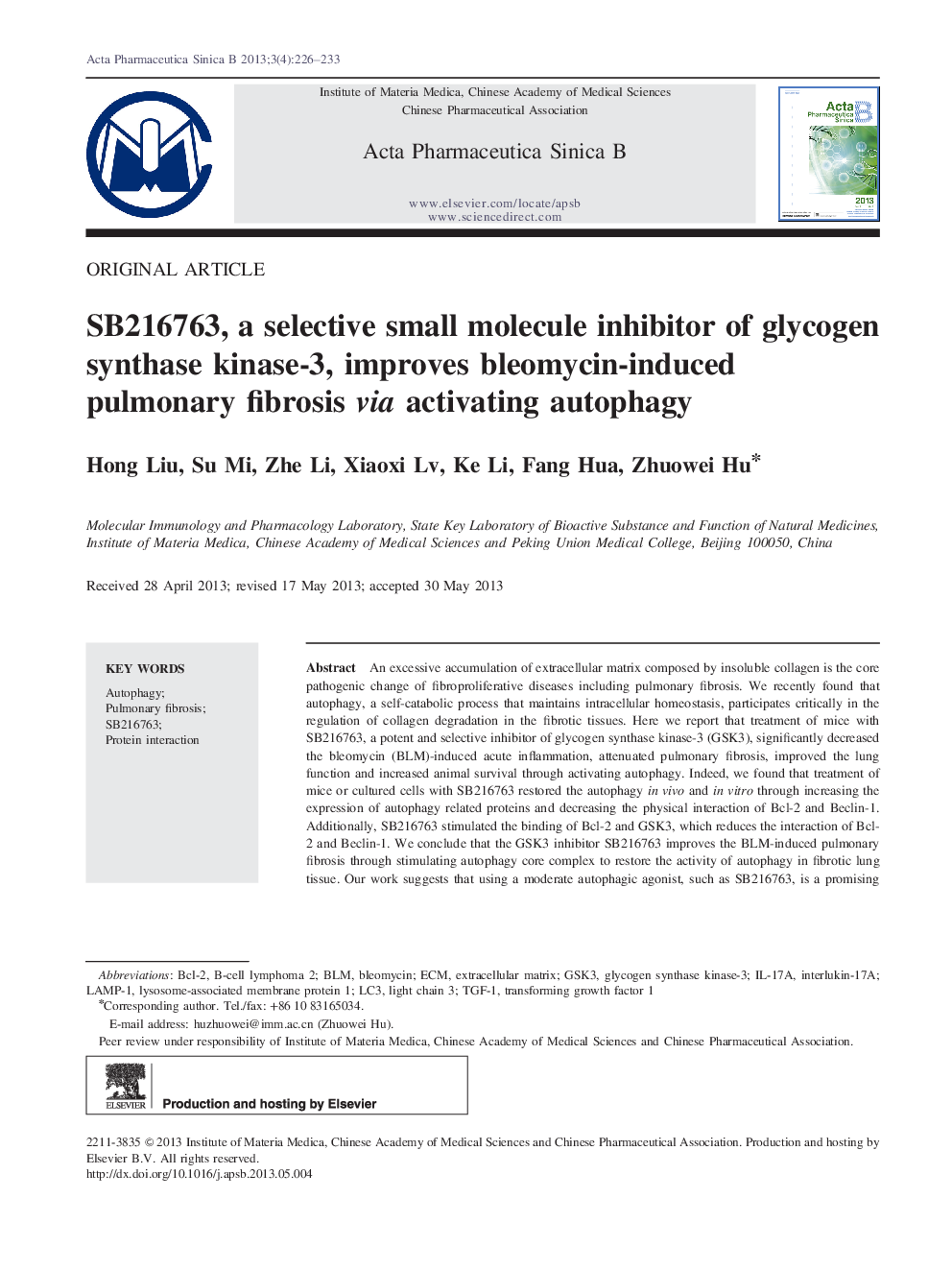| Article ID | Journal | Published Year | Pages | File Type |
|---|---|---|---|---|
| 2474648 | Acta Pharmaceutica Sinica B | 2013 | 8 Pages |
An excessive accumulation of extracellular matrix composed by insoluble collagen is the core pathogenic change of fibroproliferative diseases including pulmonary fibrosis. We recently found that autophagy, a self-catabolic process that maintains intracellular homeostasis, participates critically in the regulation of collagen degradation in the fibrotic tissues. Here we report that treatment of mice with SB216763, a potent and selective inhibitor of glycogen synthase kinase-3 (GSK3), significantly decreased the bleomycin (BLM)-induced acute inflammation, attenuated pulmonary fibrosis, improved the lung function and increased animal survival through activating autophagy. Indeed, we found that treatment of mice or cultured cells with SB216763 restored the autophagy in vivo and in vitro through increasing the expression of autophagy related proteins and decreasing the physical interaction of Bcl-2 and Beclin-1. Additionally, SB216763 stimulated the binding of Bcl-2 and GSK3, which reduces the interaction of Bcl-2 and Beclin-1. We conclude that the GSK3 inhibitor SB216763 improves the BLM-induced pulmonary fibrosis through stimulating autophagy core complex to restore the activity of autophagy in fibrotic lung tissue. Our work suggests that using a moderate autophagic agonist, such as SB216763, is a promising therapeutic strategy for the treatment of devastating fibroproliferative diseases such as idiopathic pulmonary fibrosis.
Graphical abstractSB216763, a potent and selective inhibitor of glycogen synthase kinase-3, significantly decreased the bleomycin-induced acute inflammation, attenuated pulmonary fibrosis, improved the lung function and increased animal survival through activating autophagy..Figure optionsDownload full-size imageDownload as PowerPoint slide
